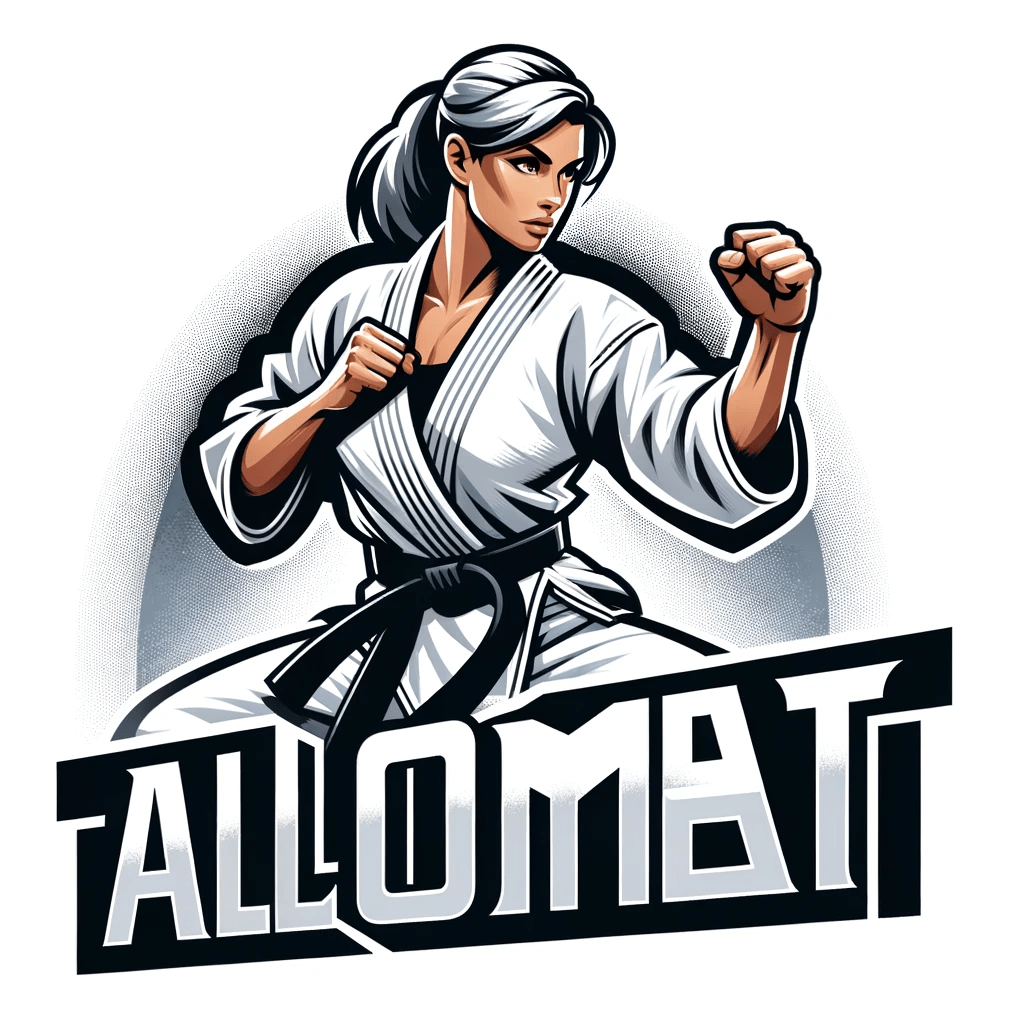The history of women in martial arts is a compelling and inspiring journey that has evolved over centuries. From early female martial artists breaking barriers to the benefits of martial arts for women and the challenges they have faced, this article delves into the remarkable story of women in this male-dominated discipline.
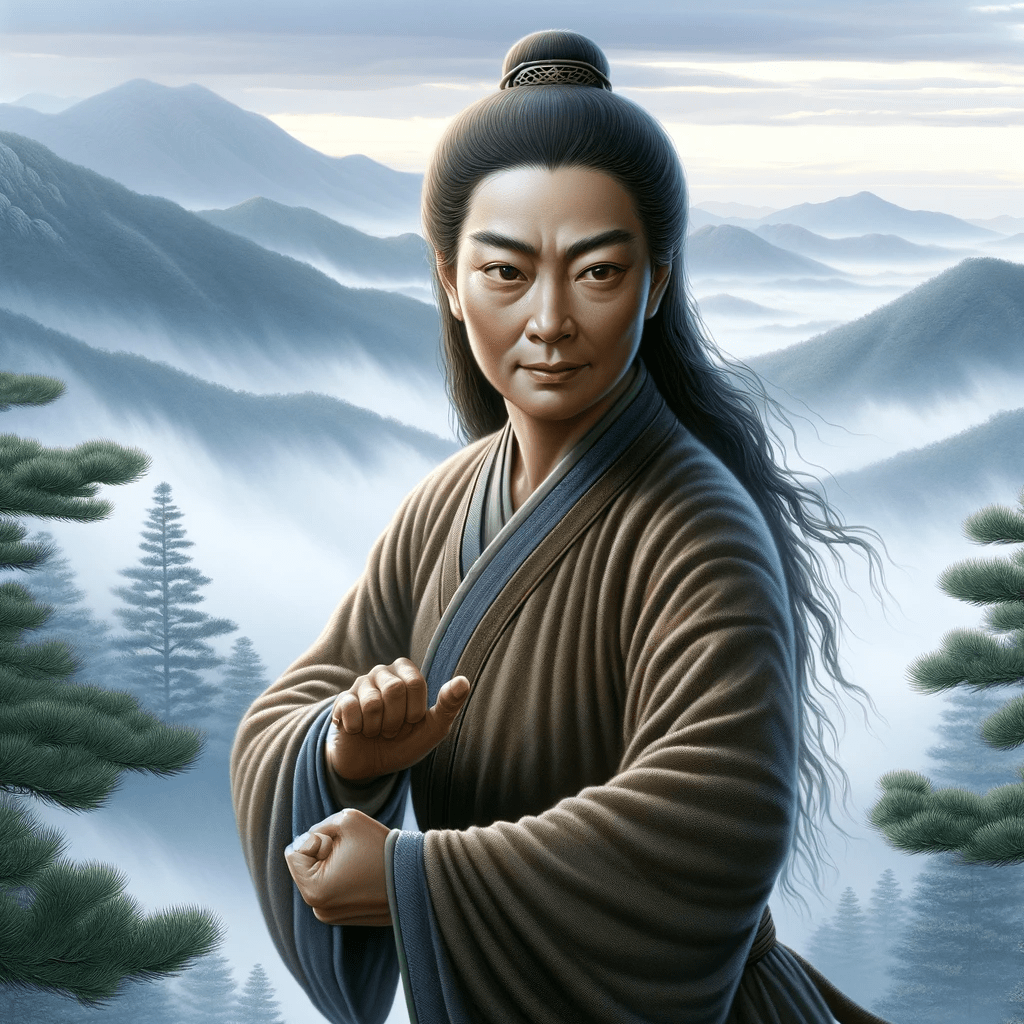
We will explore the physical and mental health benefits of martial arts, the empowerment and self-defense it provides, as well as the struggles women have encountered, including gender stereotypes and the need for representation and role models. We will highlight famous female martial artists who have made significant contributions to the sport. We will provide practical advice on how women can get started in martial arts, including finding a supportive gym and setting realistic goals.
This article aims to celebrate the achievements of women in martial arts and encourage more women to embark on their own martial arts journey.
Key Takeaways:
- Women have a long and rich history in martial arts, from early female martial artists to modern champions like Michelle Waterson and Zhang Weili.
- Practicing martial arts can have numerous benefits for women, including physical health, mental well-being, and empowerment through self-defense.
- Despite facing challenges such as gender stereotypes and balancing family life, women can thrive in martial arts by finding a supportive gym, starting with a beginner-friendly style, and setting realistic goals.
The History of Women in Martial Arts
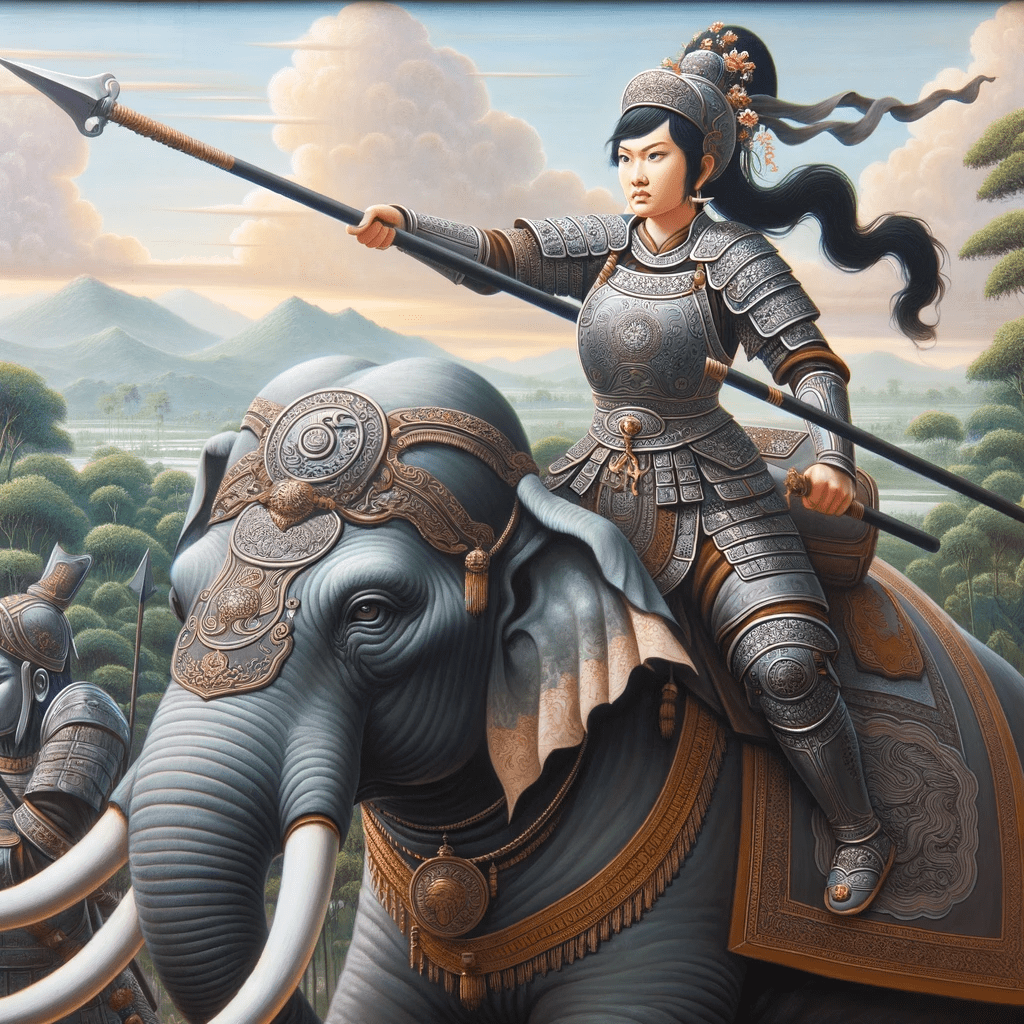
The history of women in martial arts is a rich tapestry of courage, skill, and resilience, spanning centuries and cultures, with legendary figures like Yuenü, Lady Yue, and Goujian Yue casting their indelible mark on the martial arts landscape, while Ng Mui, a revered master of the Shaolin martial arts, played a pivotal role in the creation of Wing Chun. From the valiant Lady Trieu of the Eastern Wu Dynasty to the fearless Jhalkari Bai, women have been integral to the evolution and legacy of martial arts.
Over the centuries, women in martial arts have shattered stereotypes and defied societal expectations, leaving an enduring impact on combat disciplines across the globe. Yuenü, also known as the “Chinese Joan of Arc,” was revered for her exceptional swordsmanship and leadership abilities, often compared to male warriors of her time. Lady Yue, celebrated for her strategic brilliance on the battlefield, remains an inspiration to martial artists, both male and female, for her unwavering determination and tactical acumen. Goujian Yue, with her mastery of archery and combat techniques, stands as a testament to the indomitable spirit of women in martial arts.
Ng Mui, a central figure in the legendary Shaolin mythology, is renowned for her role in refining and codifying the Wing Chun system, a martial art form that has since gained global recognition for its practicality and efficiency. Her teachings continue to enable countless practitioners, transcending gender barriers and reshaping the martial arts landscape. Lady Trieu, a revered commander and martial arts adept, fearlessly led her rebel forces against the oppressive rule of the Eastern Wu Dynasty, becoming a symbol of resistance and resilience.
The story of Jhalkari Bai, an unsung hero of India’s history, showcases a formidable warrior who fearlessly defended her queen during the Indian Rebellion of 1857. Her exceptional combat skills and unwavering loyalty have solidified her place in martial arts lore, embodying the unwavering fortitude and resilience characterized by women in martial arts throughout history.
Early Female Martial Artists
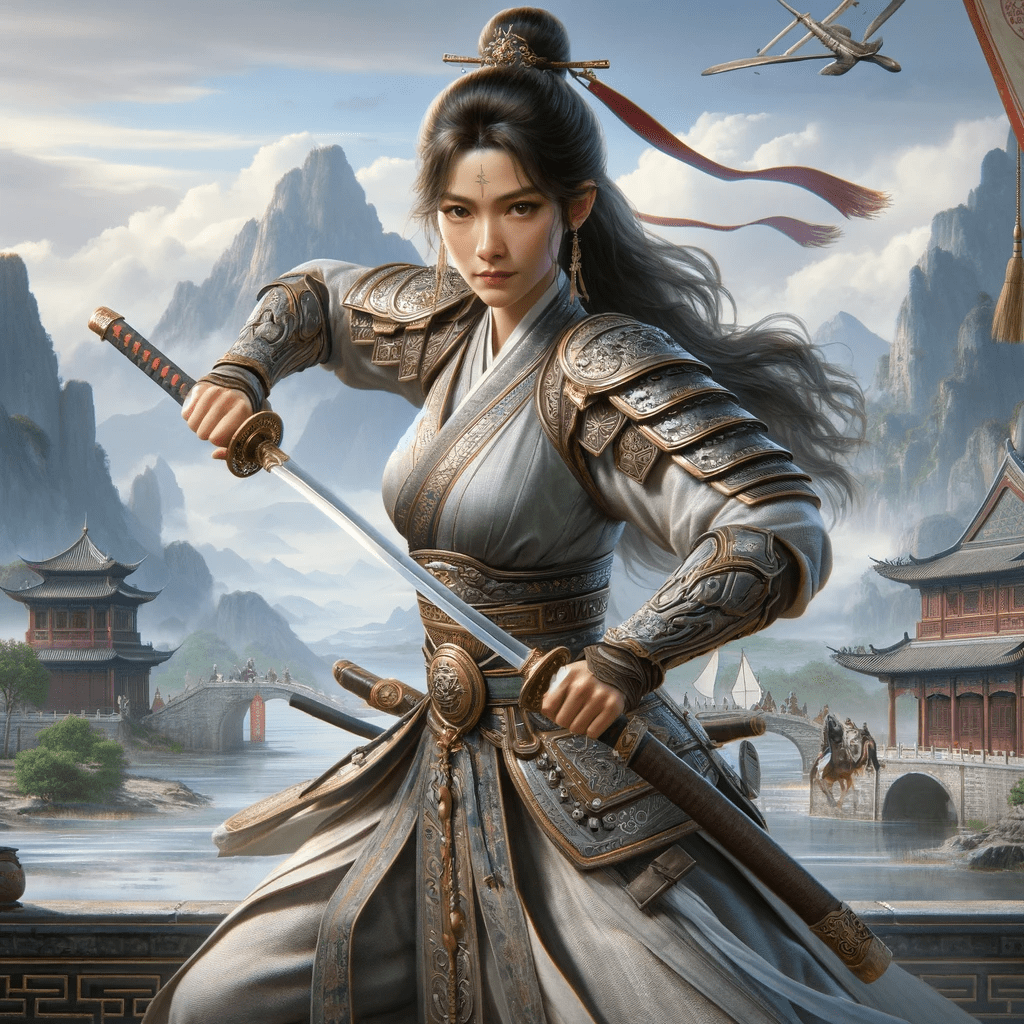
The early era of female martial artists witnessed the remarkable prowess and dedication of iconic figures such as Yuenü, Lady Yue, and Goujian Yue, all of whom defied societal norms and displayed extraordinary martial skills that left an indelible mark on the history of martial arts.
These trailblazing women, ranging from ancient China to other parts of the world, not only mastered various forms of combat but also contributed significantly to the evolution of martial arts as a whole. Their courage and determination paved the way for future generations of female practitioners, challenging the traditional gender roles within martial arts and beyond.
Centuries later, their legacy continues to inspire and enable women in the martial arts community, as their stories serve as a testament to the capability and resilience of women in a male-dominated arena. Their unwavering dedication and innate strength resonate as an enduring testament to the formidable impact of female martial artists throughout history.
Other Women’s Sports Tips
- 5 Ways You Can Relieve Lung Pain While Running
- 5 Tips to Relieve Breast Pain After Running: A Comprehensive Guide
- What Causes Teeth Pain After Running? Learn How to Prevent It!
- Solving Hamstring Pain: Tips for Runners
Women in Traditional Martial Arts
The participation of women in traditional martial arts, as exemplified by the valiant warriors of the Eastern Wu Dynasty and the martial artist Matsumura Sōkon, reflects a legacy of honor, discipline, and unwavering dedication that continues to inspire and influence the martial arts community.
Throughout history, women have played a significant but often underrepresented role in traditional martial arts. From skilled combatants in ancient civilizations to revered instructors in contemporary societies, their impact has been substantial.
Women’s contributions encompass not only their prowess in combat but also their role in preserving and passing down foundational techniques and philosophies. Their enduring commitment to martial arts has transcended societal and cultural barriers, making a lasting impression on its evolution and values.
Women in Modern Martial Arts
In the realm of modern martial arts, women have made remarkable strides, with institutions such as the International Wing Chun Academy and initiatives like the Pink Belt Project serving as powerful symbols of enablement, inclusivity, and the evolving role of women in martial arts.
The contemporary presence of women in martial arts reflects a diverse and dynamic landscape that continues to grow and thrive. Notable organizations such as the Women’s Martial Arts Network and Women in Jiu-Jitsu are playing pivotal roles in fostering community, mentorship, and skill development for female practitioners. The rise of female-led martial arts studios and training facilities is reshaping the traditional narratives of gender representation in this domain. These developments underscore the increasing visibility and significance of women in martial arts and their contributions to the discipline’s evolution.
The Benefits of Martial Arts for Women
Engaging in martial arts offers a myriad of benefits for women, encompassing physical well-being, mental fortitude, and the profound sense of enablement and self-defense, fostering a holistic approach to personal growth and wellness.
Physically, martial arts provide an excellent way for women to enhance their strength, agility, and flexibility. The disciplined practice of various techniques not only improves overall physical fitness but also aids in weight management and cardiovascular health.
Mentally, the focus, control, and resilience developed through martial arts training can transfer to everyday life, helping with managing stress, improving concentration, and cultivating a positive mindset.
The deep-rooted feeling of enablement that results from mastering self-defense skills is invaluable. It instills a sense of confidence, independence, and assurance in one’s ability to protect oneself, enhancing personal safety and security.
Physical Health Benefits
The practice of martial arts bestows an array of physical health benefits upon women, echoing the legacy of historical figures like Elizabeth Wilkinson and the discipline of Historical European martial arts, promoting strength, agility, and overall physical well-being.
Rigors of Training
Engaging in martial arts can enhance women’s physical health by improving cardiovascular fitness, muscle strength, and flexibility. The rigorous training and diverse techniques in martial arts contribute to the development of lean muscle mass, enhancing strength and endurance.
The dynamic movements and stances in martial arts promote agility, balance, and coordination, essential components for overall physical well-being. The holistic nature of martial arts training not only strengthens the body but also fosters mental discipline, resilience, and confidence.
Mental Health Benefits
The mental well-being of women is significantly enhanced through martial arts, echoing the resilience epitomized by Edith Garrud during the British suffragette movement and the profound impact of martial arts in fostering mental fortitude and emotional resilience, particularly in the U.K.
Studies have shown that women who practice martial arts experience improvements in their emotional well-being, gaining a sense of enablement and confidence that extends beyond physical prowess. The discipline and focus required in martial arts training can help in developing a strong and resilient mindset, enabling women to overcome challenges and adversities with composure.
Martial arts provide a supportive community and a positive environment, promoting camaraderie and mutual encouragement, which can be particularly beneficial for the mental wellness of women. This social aspect contributes to a sense of belonging and acceptance, fostering mental well-being among practitioners.
In addition, the emphasis on self-control and mindfulness in martial arts training can enhance emotional regulation and stress management, helping women navigate the complexities of daily life with greater equanimity and composure.
Empowerment and Self-Defense
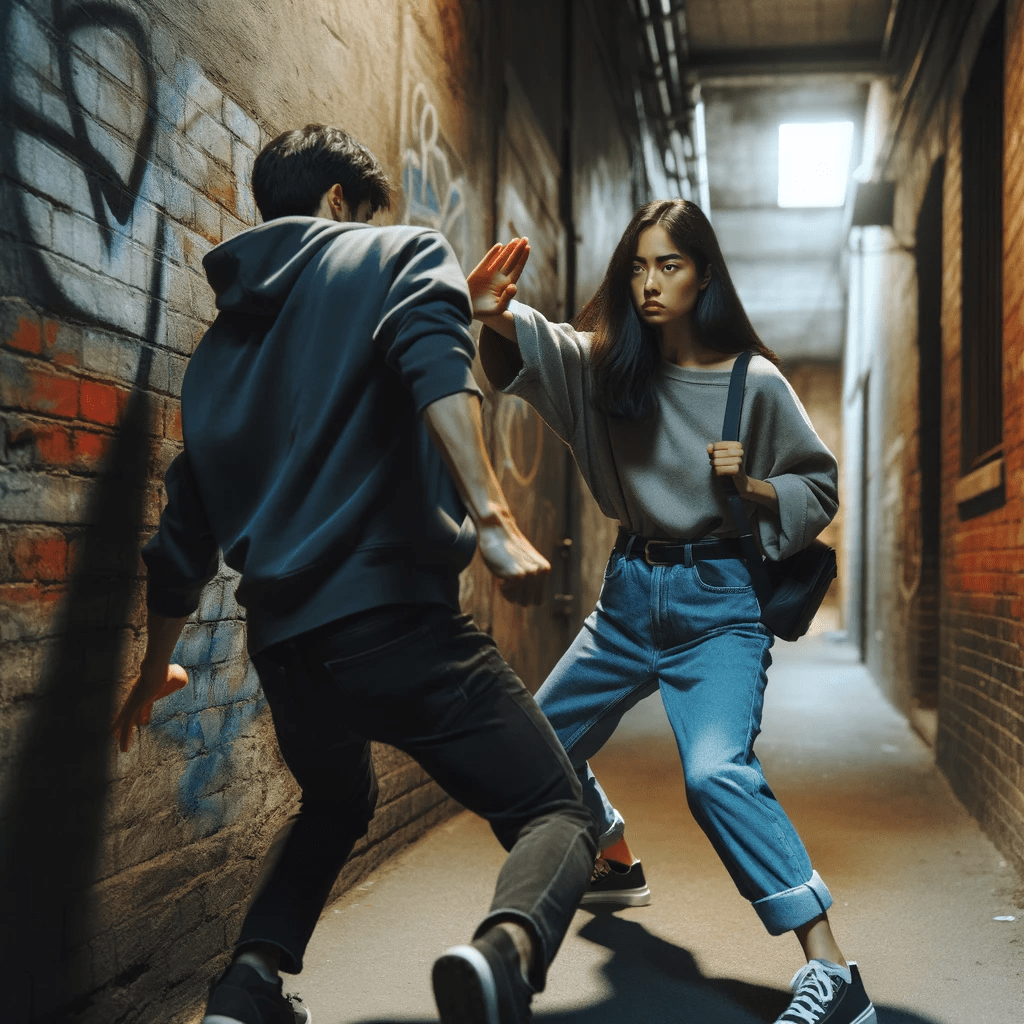
Empowerment self-defense (ESD) is a comprehensive and evidence-based system of violence prevention that aims to empower individuals, particularly women and LGBTQ+ people, to prevent, resist, and escape violent assaults. It encompasses a holistic approach to self-defense, incorporating awareness, assertiveness, verbal confrontation skills, safety strategies, and physical techniques. ESD emphasizes that individuals should not be blamed for assault and that perpetrators are responsible for their actions. It also focuses on building self-esteem, healthy personal growth, and changing societal norms around violence. ESD programs do not dictate what individuals “should” or “should not” do but instead offer options, techniques, and a way of analyzing situations, recognizing that each situation is unique. The practice of ESD is grounded in an understanding of social inequality, social justice, and the whole spectrum of gender-based violence, from harassment to attack. ESD Global and the Empowerment Self-Defense Alliance are organizations that provide ESD training and work to establish ESD as a key violence prevention strategy.
The philosophy of ESD is to empower individuals to make their own decisions in self-defense situations, recognizing that everyone has the right to defend themselves without retribution. It also aims to interrupt, respond to, and heal from violence in all forms, not just physical. ESD training includes physical self-defense techniques, verbal techniques, awareness skills, and confidence-building practices. Research has shown that ESD training may decrease the chances of experiencing future sexual victimization and has a proven association with rape avoidance. ESD Global is a global collective of ESD instructors, activists, and educators providing training worldwide to create new generations of instructors from diverse communities and empower them with the tools to teach ESD methodologies tailored to their community and the populations they serve.
Challenges Faced by Women in Martial Arts
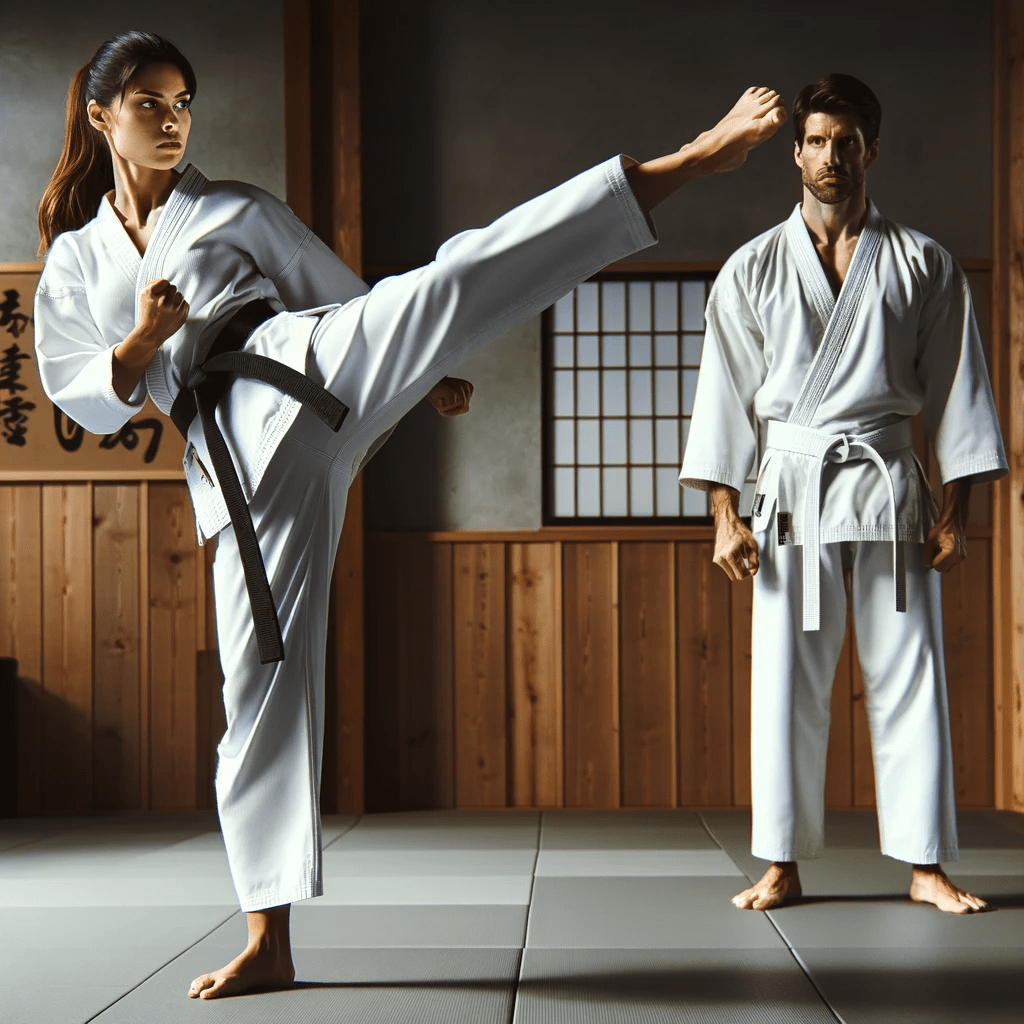
Despite the progress made, women in martial arts continue to grapple with pervasive challenges, ranging from entrenched gender stereotypes and discrimination to the absence of adequate representation and role models, underscoring the enduring struggle for equity and recognition within the martial arts community.
It is evident that the ongoing prevalence of gender stereotypes in martial arts significantly hampers the advancement of women in this field. These stereotypes not only limit opportunities for female practitioners but also hinder the creation of a more inclusive and diverse martial arts community.
The importance of addressing discrimination and fostering better representation cannot be overstated, as it directly impacts the aspirations and achievements of women in martial arts. Therefore, enhancing the visibility of female role models is crucial to inspiring and enableing the next generation of women martial artists.
Gender Stereotypes and Discrimination
Women in martial arts confront the pervasive impact of gender stereotypes and discrimination, echoing the unwavering advocacy of historical figures like Emmeline Pankhurst and the trailblazing initiatives of the Women’s Freedom League and the Women’s Social Political Union, highlighting the ongoing quest for gender equality and recognition.
The historical struggles faced by women in martial arts underscore the deeply rooted biases that continue to perpetuate today, perpetuating challenges in gaining equal opportunities and recognition within the male-dominated realm of martial arts. Despite the remarkable strides made towards gender equality, gender stereotypes and societal expectations often cast a shadow over the accomplishments of women in martial arts, placing constraints on their potential and contributions.
Lack of Representation and Role Models
The deficiency of adequate representation and role models poses a significant obstacle for women in martial arts, underscoring the importance of inspiring figures like Trieu Thi Trinh, Lady Trieu, and the trailblazing legacy of Yonamine Chiru, emphasizing the need for diverse and enableing role models within the martial arts community.
It is crucial for women to have diverse and enableing role models to look up to in the martial arts world. Without such representation, many aspiring female practitioners may struggle to find mentors who understand and reflect their experiences. The impact of this deficiency extends beyond just individual motivation; it affects the entire community by limiting the visibility of women in martial arts and perpetuating outdated stereotypes.
Encouraging diversity in role models not only imparts confidence and inspiration to current practitioners but also attracts new participants to the sport, promoting inclusivity and progression in the martial arts culture.
Balancing Family and Training
The delicate balance between familial responsibilities and rigorous training presents a significant challenge for women in martial arts, echoing the unwavering dedication of historical figures like Elizabeth Wilkinson and the discipline of Matsumura Sōkon, underscoring the need for support and understanding in reconciling familial commitments with martial arts pursuits.
For many women, managing family obligations alongside the intense demands of martial arts training requires a finely tuned juggling act. The historical achievements of pioneering female martial artists, such as Elizabeth Wilkinson, exemplify the determination and resilience needed to navigate these intersecting spheres of life.
Famous Female Martial Artists
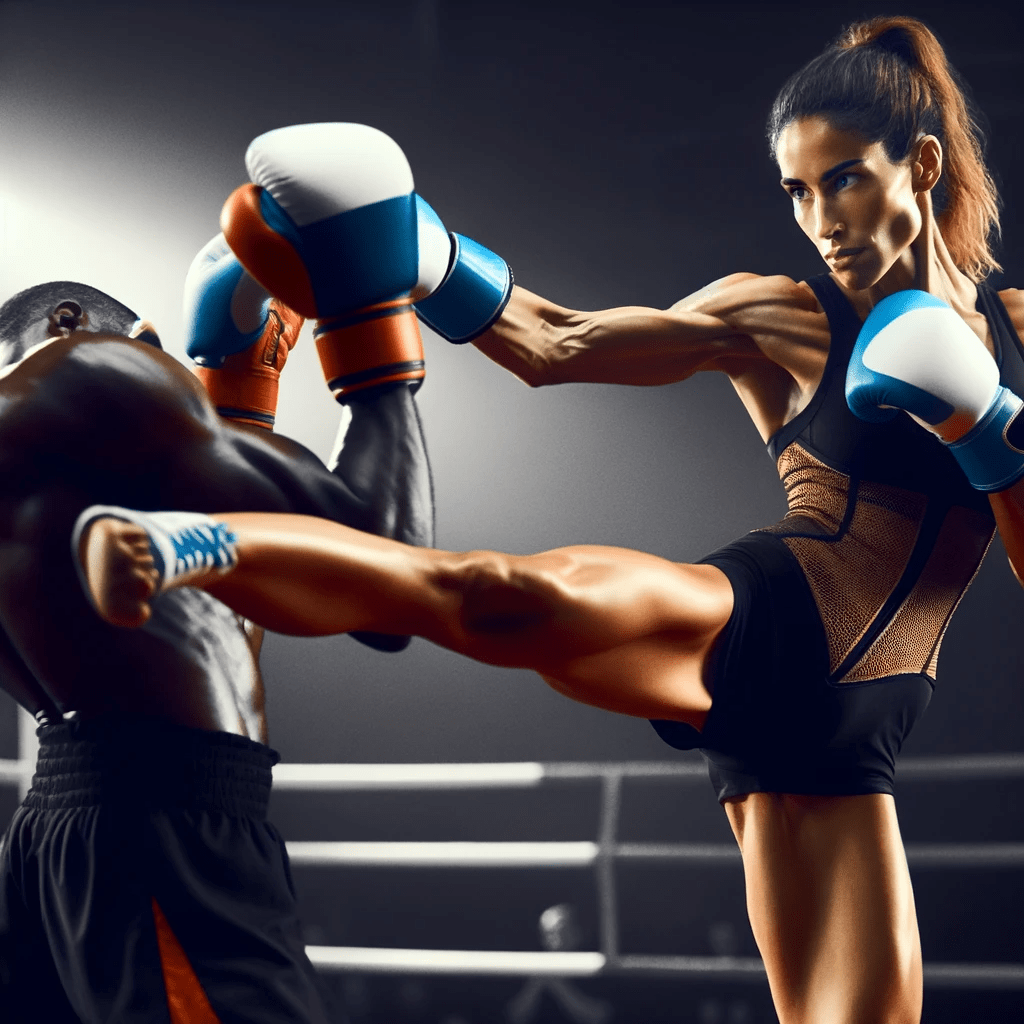
The realm of martial arts boasts an array of renowned female practitioners, with iconic figures such as Michelle Waterson, Ronda Rousey, and Zhang Weili serving as beacons of inspiration and accomplishment, redefining the narrative of women’s excellence and impact in martial arts.
These women have not only achieved remarkable success in their respective disciplines but also shattered stereotypes and opened doors for countless aspiring female martial artists.
Michelle Waterson, known as the ‘Karate Hottie,’ has displayed exceptional skill and determination in both kickboxing and mixed martial arts, paving the way for other women to excel in these physically demanding sports.
Ronda Rousey, a former UFC Bantamweight Champion, brought widespread attention to women’s MMA with her unparalleled dominance and undeniable charisma, proving that women can thrive in a traditionally male-dominated arena.
On the other hand, Zhang Weili, the UFC Strawweight Champion, has captivated audiences with her powerful fighting style, showcasing the strength and resilience of female martial artists on a global stage.
Their influence extends beyond the confines of the octagon, as they have become symbols of enablement and representation for women worldwide, inspiring the next generation of martial artists to pursue their dreams with unwavering determination.
Michelle Waterson
Michelle Waterson, a prominent figure in the martial arts arena, has garnered acclaim for her exceptional skills and impactful presence, leaving an indelible mark as a remarkable practitioner of martial arts, particularly within the UFC and the discipline of karate.
Her journey in martial arts began at a young age, sparked by her passion for the discipline. Over the years, she has risen to prominence through her unwavering dedication and relentless pursuit of excellence. Notably, Waterson’s time in the UFC has seen her face formidable opponents, showcasing her resilience and prowess in the octagon.
Her influence extends beyond her accomplishments in the ring, as she has become an advocate for diversity and inclusion in the martial arts community. Waterson’s impact has transcended the boundaries of the sport, inspiring many with her tenacity and poise.
Ronda Rousey
Ronda Rousey stands as a seminal figure in the martial arts domain, renowned for her groundbreaking achievements in mixed martial arts and the discipline of judo, redefining the paradigm of women’s impact and success in martial arts on a global scale.
Her fearless approach to competition and unwavering tenacity propelled her to the pinnacle of the sports world, solidifying her status as an inspiration for aspiring martial artists, particularly women, across the globe. Rousey’s dominance in the Ultimate Fighting Championship (UFC) revolutionized the perception of female athletes in combat sports, breaking barriers and garnering widespread acclaim for her exceptional skill set and unparalleled dedication.
Zhang Weili
Zhang Weili’s meteoric rise in the domain of martial arts has been marked by her unparalleled prowess and trailblazing impact within the UFC and the realm of mixed martial arts, solidifying her status as a prominent figure and an embodiment of women’s excellence in martial arts.
Her remarkable journey has captivated audiences worldwide, transcending cultural boundaries and inspiring countless individuals to pursue their passion for martial arts. Weili’s ascent to the top echelons of the sport is a testament to her unwavering determination, skill, and dedication to her craft.
Her historic victory to become the UFC Women’s Strawweight Champion not only elevated her personal standing but also reshaped the narrative of women’s success in martial arts, amplifying the visibility and recognition of female athletes within the fiercely competitive realm.
How to Get Started in Martial Arts as a Woman
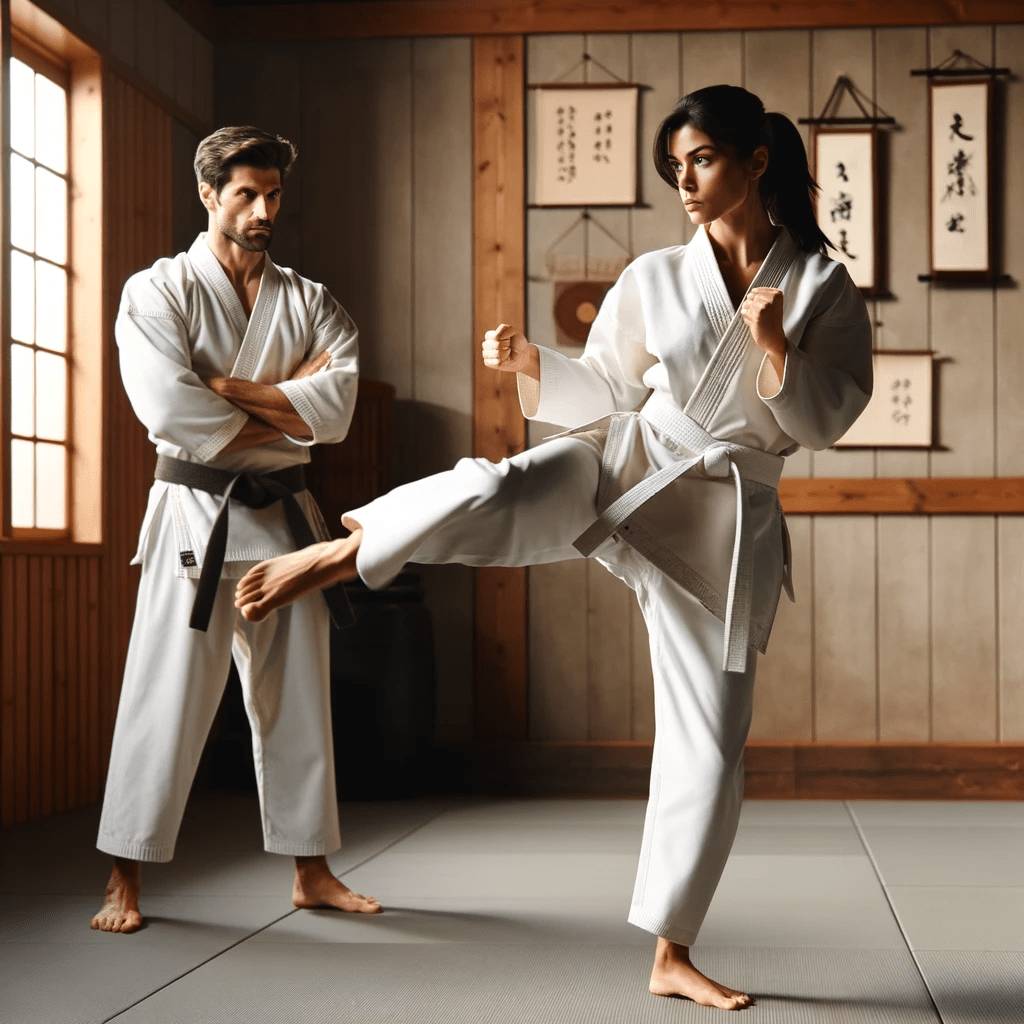
Main Articles
- Can I Shower After Cryotherapy?Yes, you can shower after cryotherapy and you can get back to your normal routine almost immediately. Just be sure to gently… Read more: Can I Shower After Cryotherapy?
- Should You Workout After Cryotherapy?Studies are inconclusive if working out after or before a Cryotherapy session is best. Cryotherapy has become increasingly popular among… Read more: Should You Workout After Cryotherapy?
- The Best Way To Remove SunscreenIts getting close to that time of year! Sun and fun at the beach. You slather on your sunscreen at… Read more: The Best Way To Remove Sunscreen
Embarking on a martial arts journey as a woman necessitates finding a supportive and inclusive gym, selecting a beginner-friendly style, and cultivating realistic goals while exercising patience, fostering a nurturing environment for personal growth and skill development.
When considering beginning your journey in martial arts, it’s important to seek out a gym that not only encourages diversity and inclusion but also provides a welcoming atmosphere for individuals of all levels. Look for instructors who prioritize the comfort and progress of their students, offering guidance and support to help you thrive.
Choose a style of martial arts that is well-suited for beginners, such as Taekwondo, Jiu-Jitsu, or Karate. These styles often focus on foundational techniques and forms, making them accessible and beneficial for newcomers.
Setting achievable goals is crucial for maintaining motivation and tracking progress. Whether it’s mastering a specific move or increasing your overall fitness, establishing objectives can keep you inspired and dedicated to your practice.
Above all, remember that progress takes time, and it’s essential to embrace patience as you navigate your martial arts journey. Celebrate each step forward, no matter how small, and trust in the process of continual improvement.
Find a Supportive and Inclusive Gym
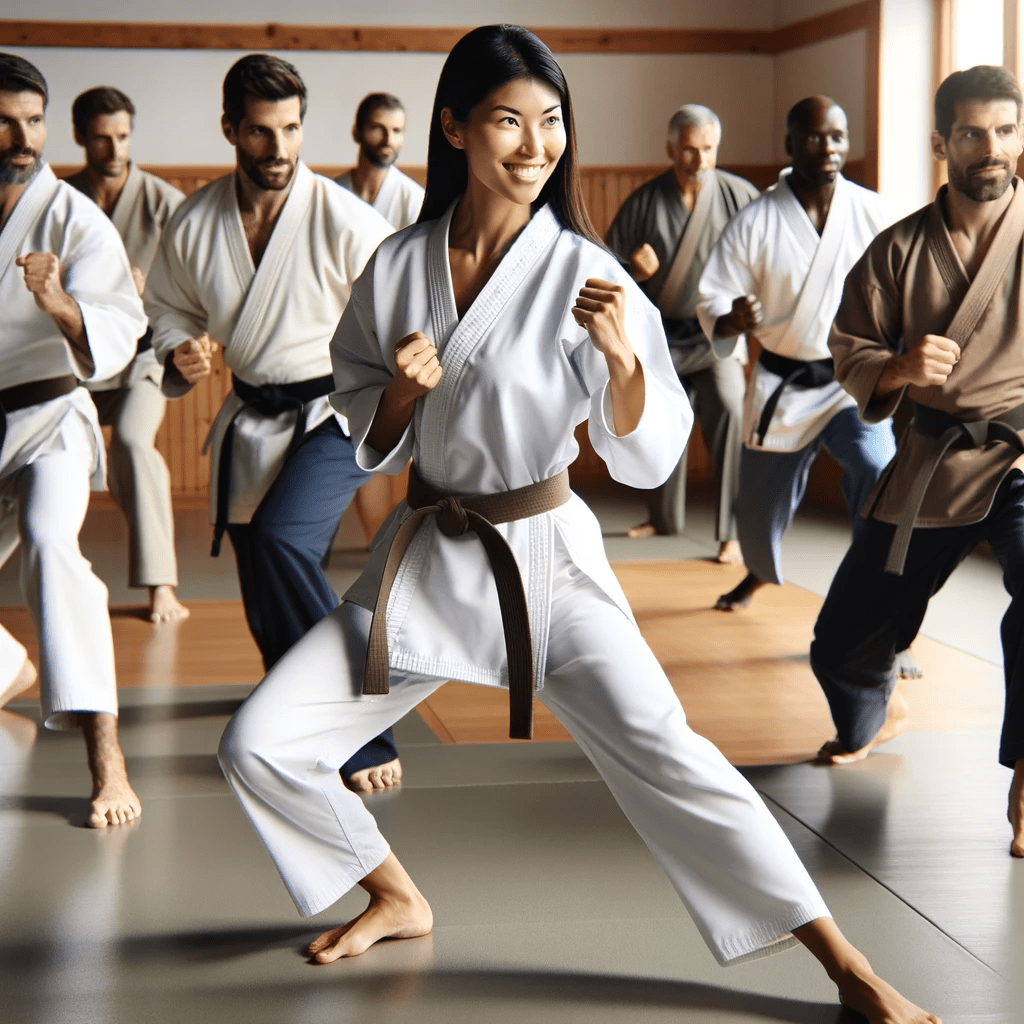
The foundation of a successful martial arts journey for women rests upon finding a supportive and inclusive gym environment that echoes the ethos championed by institutions like the International Wing Chun Academy and the principles upheld by initiatives like the Pink Belt Project, fostering an atmosphere of inclusivity and enablement.
Such an environment nurtures a sense of belonging and encouragement which is vital for women exploring martial arts. The gym should prioritize providing a supportive community, knowledgeable instructors, and tailored programs to cater to the specific needs of female practitioners. It should also promote enablement through positive reinforcement and opportunities for leadership and skill development. Having clear inclusivity policies and zero tolerance for discrimination creates a safe space for women to train and grow.
Start with a Beginner-Friendly Style
Commencing the martial arts journey as a woman entails embracing a beginner-friendly style that mirrors the pioneering spirit embodied by historical figures like Elizabeth Wilkinson and aligns with the principles advocated by initiatives such as the Pink Belt Project, fostering a supportive and encouraging learning environment.
Choosing a beginner-friendly martial arts style offers an accessible entry point for women, allowing them to develop confidence and strength in a welcoming setting. These styles prioritize skill progression and encourage individuals to reach their potential at their own pace, reinforcing a sense of enablement. By joining a community that values inclusivity and support, women can build foundational skills that can translate into various aspects of their lives. The importance of finding a style that embodies these qualities cannot be overstated, as it sets the stage for a fulfilling and enduring martial arts journey.
Set Realistic Goals and Have Patience
Establishing realistic goals and embracing patience are pivotal components of a woman’s martial arts journey, echoing the tenacity exemplified by iconic figures like Yuenü and Lady Yue, fostering a mindset of perseverance and continuous growth within the martial arts domain.
By setting achievable milestones and understanding that progress takes time, women in martial arts can cultivate a strong foundation for their development. This involves acknowledging the incremental improvements and celebrating small victories, fueling the enduring spirit of progress. Patience becomes a guiding force, allowing individuals to persist through challenges and setbacks, ultimately enhancing their determination and resilience. As they navigate their journey, their unwavering commitment to their craft shapes them into formidable practitioners, embodying the essence of martial arts and female enablement.
Our Popular Articles
- Can You Do Cryotherapy While Pregnant?
 Cryotherapy is an increasingly popular wellness treatment used to speed recovery from muscle strain and reduce pain, as well as… Read more: Can You Do Cryotherapy While Pregnant?
Cryotherapy is an increasingly popular wellness treatment used to speed recovery from muscle strain and reduce pain, as well as… Read more: Can You Do Cryotherapy While Pregnant? - Benefits of Cryotherapy For Athletes
 Cryotherapy, or “ice bath,” uses freezing temperatures to promote pain relief and muscle healing. Cryotherapy has become popular with athletes… Read more: Benefits of Cryotherapy For Athletes
Cryotherapy, or “ice bath,” uses freezing temperatures to promote pain relief and muscle healing. Cryotherapy has become popular with athletes… Read more: Benefits of Cryotherapy For Athletes - Does Cryotherapy Help With Cellulite?
 Cryotherapy is an increasingly popular cellulite treatment method, employing extreme cold temperatures to freeze fat cells in your body and… Read more: Does Cryotherapy Help With Cellulite?
Cryotherapy is an increasingly popular cellulite treatment method, employing extreme cold temperatures to freeze fat cells in your body and… Read more: Does Cryotherapy Help With Cellulite?
Frequently Asked Questions
What is the history of women in martial arts?
The history of women in martial arts dates back to ancient times, where women played an important role in martial arts training and combat. However, in modern times, it has been a male-dominated field, and it was not until the late 19th century that women began to actively participate in martial arts.
What are the benefits of women practicing martial arts?
Women who practice martial arts experience numerous physical and mental benefits, such as improved strength, flexibility, balance, and self-confidence. It also teaches self-defense skills and promotes overall well-being.
Do women face any challenges in the martial arts industry?
Yes, women have faced numerous challenges in the martial arts industry, including discrimination, lack of representation, and unequal opportunities. However, with the growing awareness and recognition of women in martial arts, these challenges are slowly being addressed.
Can women achieve high ranks in martial arts?
Absolutely, women have proven time and again that they can achieve high ranks in martial arts. Some of the most renowned and skilled martial artists in the world are women, and they continue to break barriers and inspire others to do the same.
How can martial arts benefit women’s self-defense?
Martial arts training equips women with the skills and techniques necessary to defend themselves in dangerous situations. It also teaches them to be more aware of their surroundings and to have the confidence to protect themselves if needed.
Are there any specific martial arts styles for women?
There are no specific martial arts styles exclusively for women. However, some styles, such as Brazilian Jiu-Jitsu and Krav Maga, are popular among women due to their focus on technique over strength. Ultimately, any martial art can be tailored to fit a woman’s individual needs and abilities.
Recent Articles
- The World of Alternative Cardio Workouts
 Are you tired of the same old cardio routine? Do you find yourself looking for new and exciting ways to… Read more: The World of Alternative Cardio Workouts
Are you tired of the same old cardio routine? Do you find yourself looking for new and exciting ways to… Read more: The World of Alternative Cardio Workouts - 10 Alternatives to Running on a Treadmill
 Are you tired of the monotony of running on a treadmill? Looking for new ways to spice up your fitness… Read more: 10 Alternatives to Running on a Treadmill
Are you tired of the monotony of running on a treadmill? Looking for new ways to spice up your fitness… Read more: 10 Alternatives to Running on a Treadmill - Alternative Exercise’s Instead of Using a Rowing Machine for Cardio
 Looking to switch up your workout routine? In this article, we’ll explore the popular fitness tool known as the rowing… Read more: Alternative Exercise’s Instead of Using a Rowing Machine for Cardio
Looking to switch up your workout routine? In this article, we’ll explore the popular fitness tool known as the rowing… Read more: Alternative Exercise’s Instead of Using a Rowing Machine for Cardio
